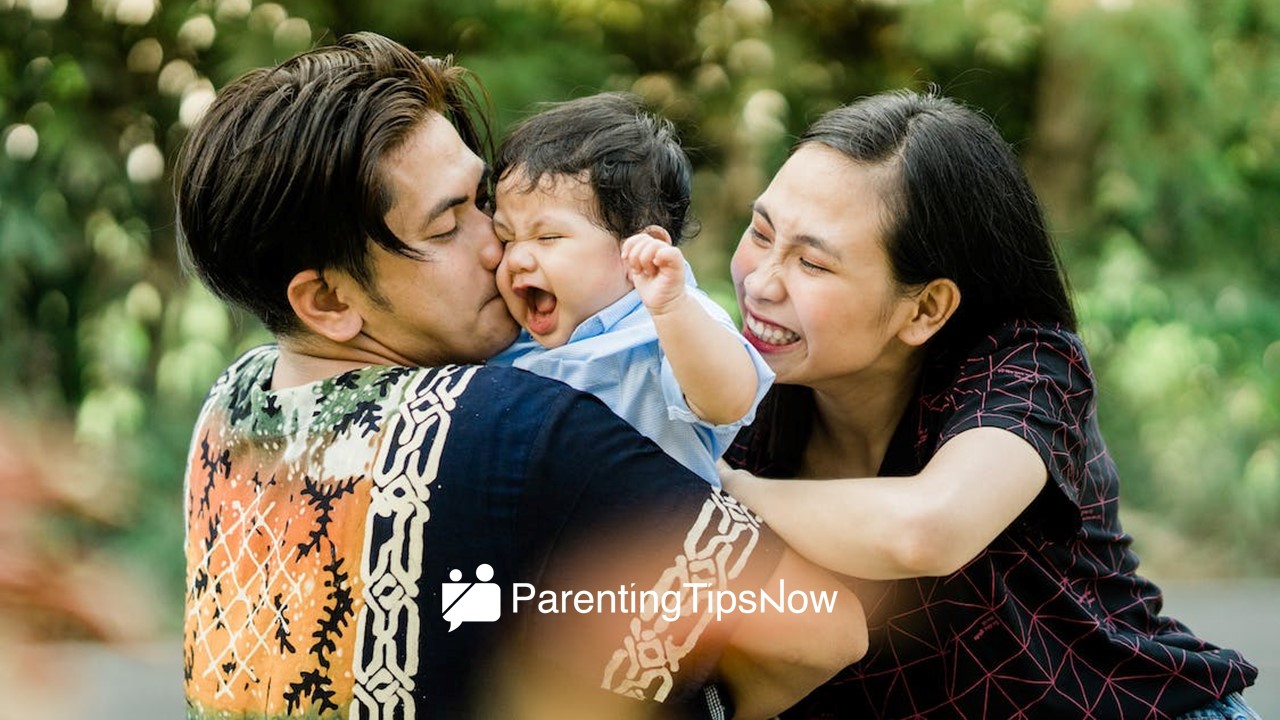Table of Contents
ToggleIn a fast-paced world where happiness seems to be an elusive pursuit, there is a community whose secret lies within their strong family values. The Philippines, known for its warm hospitality and vibrant culture, holds a treasure trove of traditions that have been passed down through generations. At the heart of this rich tapestry are eight Filipino family values that not only bind loved ones together but also pave the way to genuine happiness. Join us as we delve into these cherished customs and discover how they can transform our own lives.
The Importance of Filipino Family Values in Happiness
Filipino family values are crucial in fostering happiness within individuals and their communities. One of these Filipino family values is close-knit family ties. In Filipino culture, the bond between family members is highly cherished and cultivated. This strong sense of connection provides emotional support, a sense of belonging, and a feeling of security that contributes to overall well-being. When individuals feel supported and loved by their families, they are more likely to experience higher levels of happiness and contentment in their lives.
Another significant aspect of Filipino family values is the value given to respect for elders. In Filipino culture, showing respect towards older family members is deeply ingrained from a young age. This value not only fosters intergenerational relationships but also creates an environment where wisdom and knowledge are shared across generations. By valuing the experiences and perspectives of elders, younger family members gain valuable insights that can help them navigate through life’s challenges with greater confidence and resilience. Ultimately, this mutual respect leads to stronger familial bonds, increased harmony within the household, and ultimately contributes to individual happiness.
Overall, understanding and embracing traditional Filipino family values can have a profound impact on an individual’s level of happiness. These core values create strong support systems within families, encouraging emotional well-being while fostering respectful relationships across generations. By prioritizing these values in everyday life, Filipinos are able to cultivate happier households that extend beyond just immediate family members but also contribute positively to their wider communities as well.

What are the 9 Filipino Family Values That Lead to Happiness?
Here are the nine important Filipino family values that may lead to happiness:
1: Strong Sense of Close-knit Community
One of the most remarkable Filipino family values is their strong sense of a close-knit community. In the Philippines, families are not just made up of immediate relatives but also include extended family members and even close friends. This results in a network of support that is unparalleled, as everyone looks out for one another.
In times of celebration or adversity, Filipinos come together in unity to make sure that no one is left behind. Whether it’s organizing large gatherings or offering help during times of crisis, the Filipino community always steps up to lend a helping hand. This sense of community creates a safe and nurturing environment where individuals feel valued and supported.
Moreover, this strong bond extends beyond blood relations and often includes neighbors and local communities as well. From regular neighborhood barbecues to collective efforts to maintain cleanliness, Filipinos believe in working together for the greater good. This unique characteristic fosters connection and camaraderie among people from diverse backgrounds, creating a vibrant social fabric that enriches every individual’s life.
The strong sense of a close-knit community ingrained in Filipino culture plays a significant role in promoting happiness and well-being. By valuing relationships with both immediate family members and extended networks within their communities, Filipinos create an atmosphere of love, care, and support. It is through building these meaningful connections that they find strength in unity and uplift each other towards greater heights.

2: Deep Respect for Elders
In Filipino culture, there is an innate sense of reverence and deep respect for elders that goes beyond mere familial hierarchy. It is a value deeply embedded in the social fabric of society, emphasizing the importance of honoring and caring for those who have come before us. This respect encompasses not only our grandparents or immediate family members but extends to every elderly person we encounter.
One reason Filipino family values have this strong regard for their elders is rooted in the belief that they possess invaluable wisdom and invaluable experiences. They are seen as the bearers of cultural heritage, passing down age-old traditions, stories, and customs from one generation to another. This recognition gives them a sense of identity and a feeling of being appreciated by younger individuals, fostering a harmonious relationship between generations.
Furthermore, this reverence for elders creates a support system within Filipino families. Elders often play an essential role in offering guidance and advice to younger family members when faced with important decisions. Their input is highly regarded due to their life experiences and accumulated knowledge. By respecting our elders’ opinions, we not only show gratitude but also foster stronger family bonds built on trust and understanding.
Filipino family values place great importance on showing deep respect for their elders because it is rooted in recognizing their wisdom and creating nurturing relationships between different generations within the family structure. This value strengthens familial bonds while providing valuable insights for navigating life’s challenges more effectively. Ultimately, through expressing appreciation towards older generations, Filipinos create a harmonious environment that contributes to lasting happiness and fulfillment for everyone involved. The concept of utang na loob further reinforces this cultural value, as it emphasizes the idea of indebtedness and gratitude towards those who have guided and supported us throughout our lives.

3: Emphasis on Filial Piety
Filial piety, or respect and devotion towards one’s parents and elders, is a value deeply ingrained in Filipino family values. It goes beyond mere obedience; it is an act of love and gratitude that forms the foundation of family ties. In Filipino households, the importance of filial piety is often emphasized from a young age, teaching children to honor their parents through acts of service, care, and support.
The emphasis on filial piety helps create strong familial bonds that provide a sense of security and belonging. By valuing and demonstrating respect for their elders, Filipinos not only show gratitude for everything their parents have done but also establish a reciprocal relationship based on love and appreciation. This deep-rooted culture of filial piety strengthens family relationships by fostering open communication channels, trust-building opportunities, and promoting intergenerational understanding.
In addition to strengthening family ties within the immediate household, emphasizing filial piety also extends to extended family members. It encourages Filipinos to take care of their grandparents or elderly relatives who may need assistance or companionship. Through acts of kindness towards older generations, such as visiting them regularly or providing emotional support during difficult times, families are brought closer together while elders feel valued and cherished.
Overall, emphasizing filial piety plays a vital role in creating harmonious familial dynamics by instilling a sense of responsibility towards one’s parents and ancestors. By upholding this traditional value with utmost reverence while embracing modern Filipino family values like independence and assertiveness when necessary, Filipinos are able to maintain a balance between honoring their heritage and adapting to the changing times.

4: Value of Extended Family Relationships
Extended family relationships play a vital role in Filipino family values, and their value cannot be overstated. In a society that places great importance on familial bonds, the presence of grandparents, aunts, uncles, and cousins brings about a sense of belonging and support that strengthens the individual’s overall well-being. Extended family members serve as confidants, advisors, and companions who provide valuable guidance throughout different stages of life.
One of the most significant benefits of extended family relationships is the intergenerational exchange of wisdom and knowledge. Older family members possess a wealth of experiences and lessons learned that they can pass down to younger generations. This transfer of knowledge not only helps individuals navigate through various challenges but also provides them with valuable insights into their cultural heritage and identity.
Furthermore, extended family relationships foster collaboration in times of need or celebration. During difficult periods, such as illnesses or financial struggles, relatives often come together to offer emotional support and practical assistance. Likewise, during festive events like birthdays or reunions, extended families create an atmosphere filled with love and warmth that reinforces the feeling of unity among relatives.
Recognizing the value of extended family relationships allows individuals to appreciate their connection to a larger network beyond just immediate family members. These connections serve as pillars of strength during challenging times while providing opportunities for shared experiences that contribute to one’s happiness and sense of belonging within one’s ancestral roots.

5: Celebration of Togetherness and Bonding
The celebration of togetherness and bonding is a cornerstone of Filipino family values. In the hustle and bustle of daily life, taking the time to gather as a family and celebrate special occasions strengthens the bond between loved ones. These moments serve as a reminder that no matter what challenges may come our way, we have each other’s unwavering support.
One of the most significant celebrations in Filipino culture is fiestas. These festive gatherings bring together not only immediate family members but also distant relatives, friends, and even neighbors. The sense of camaraderie is unparalleled, as everyone contributes to preparing scrumptious meals and participating in traditional games. These events are not just about indulging in delectable dishes or enjoying lively conversations; they are an opportunity to reconnect with loved ones, forge new friendships, and create lasting memories.
Another way Filipinos celebrate togetherness is through pulong, which translates to a meeting or assembly. Pulongs can take many forms – from informal get-togethers at home to more formal meetings held by organizations or religious groups. What makes these gatherings remarkable is their focus on dialogue and open communication. Pulongs provide a platform for families to discuss important matters, resolve conflicts, share stories, exchange wisdom passed down through generations, or catch up on each other’s lives.
By cherishing these moments of shared food, laughter-filled conversations, and heartfelt discussions that go beyond the superficialities of life, Filipinos uphold the value of celebrating together, fostering strong relationships, and maintaining a sense of community.

6: Commitment to Support and Help Others
Filipino families are known for their strong commitment to support and help others, not just within their own family circle but also in their communities. This value is deeply rooted in the concept of Bayanihan, which embodies the spirit of communal unity and cooperation. Filipinos understand that by reaching out and extending a helping hand, they not only uplift the lives of those in need but also strengthen bonds within their own family.
The commitment to support and help others can be witnessed through various forms of volunteering, charity work, or even simply being there for someone who needs a listening ear. Families often rally together during times of crisis or calamity, pooling resources and offering assistance to those affected. This value nurtures empathy, kindness, and compassion among family members as they learn firsthand the importance of lending a helping hand to those less fortunate.
Moreover, this commitment teaches individuals invaluable life lessons about gratitude and selflessness. By experiencing firsthand how supporting others can bring joy and purpose into their lives, Filipino families pass down this essential value from one generation to another. It creates a cycle where acts of kindness become contagious within families and communities alike – fostering an environment where everyone thrives with love, care, and shared responsibility.
The commitment to supporting and helping others is a vital aspect of Filipino family values that contribute greatly to collective happiness. By embodying the spirit of Bayanihan, Filipino families forge stronger bonds within themselves while making positive impacts on society as a whole. The concept of Bayanihan, which is deeply ingrained in Filipino culture, promotes unity and cooperation among families and communities.

7: Bayanihan (Community Cooperation)
One of the most beautiful aspects of Filipino culture is the concept of Bayanihan, which refers to the spirit of community cooperation. In times of need or celebration, Filipinos come together as a collective force to support one another. This value emphasizes the importance of building strong relationships and mutual reliance among members of a community.
Bayanihan goes beyond simple acts of kindness; it encompasses Filipino family values and the idea that when individuals come together and work towards a common goal, incredible things can be achieved. It encourages sharing resources, knowledge, and skills to uplift everyone in the community. This sense of unity fosters a sense of belonging and strengthens bonds between neighbors, making sure that no one is left behind during challenging times.
In today’s increasingly individualistic society, practicing Bayanihan can truly make a difference. By prioritizing collaboration over competition and extending help without expecting anything in return, we create an environment where everyone feels valued and supported. When each person understands their role in building a stronger community, extraordinary results can be achieved that benefit not only individuals but also society as a whole.
And so we see that Bayanihan is not just limited to physical assistance but extends to emotional support as well. In difficult times, such as dealing with natural disasters or personal crises like illnesses or funerals, this value enables people to lean on each other for comfort and strength. The spirit of Bayanihan creates connections within families and communities that are based on empathy and compassion.
When we embrace this unique Filipino value, we remind ourselves that we are all interconnected and that the well-being of one person affects the well-being of others.

8: Pagmamano (Respect for Elders)
In the Filipino culture, showing respect for elders is deeply ingrained in the fabric of society. One beautiful expression of this respect is through a gesture called pagmamano. This act involves taking an elder’s hand and gently pressing it against one’s forehead as a sign of reverence and gratitude. While pagmamano may seem like a simple gesture, it carries profound meaning and serves as a reminder of the strong Filipino family values that bind families together.
Pagmamano goes beyond mere physical contact; it symbolizes acknowledgment of an elder’s wisdom and experience. By honoring our elders in such a way, we are acknowledging their role as custodians of our shared heritage. It instills humility in younger generations while reminding them to be attentive listeners and learners. Furthermore, this act fosters a sense of interconnectedness within the family unit by nurturing bonds across different generations. In essence, pagmamano teaches us that true happiness comes from cherishing our roots, respecting those who came before us, and carrying their lessons forward into the future.

9: Pakikisama (Harmonious Relationships)
Pakikisama, or the value of maintaining harmonious relationships, is deeply ingrained in Filipino family values. It emphasizes the importance of unity, cooperation, and respect within families and communities. In a society where collectivism prevails over individualism, pakikisama plays a vital role in fostering strong bonds and creating a sense of belonging.
At its core, pakikisama encourages Filipinos to prioritize group harmony over personal desires or conflicts. This value is evident in various aspects of Filipino life – from decision-making processes that involve family consensus to the concept of Bayanihan, where communities come together to help one another. By prioritizing unity and understanding among family members, conflicts are resolved more efficiently, and relationships are strengthened.
Furthermore, pakikisama also extends beyond individual relationships and encompasses interactions between different social groups. This value promotes inclusivity and tolerance, regardless of differences in background or opinion. It encourages Filipinos to practice empathy towards others and find common ground amidst diversity.
In today’s fast-paced world, where individualism often takes precedence over community values, embracing the notion of pakikisama can have profound benefits for individuals’ overall happiness and well-being. Cultivating harmonious relationships not only strengthens familial bonds but also fosters a greater sense of connectedness with one’s community – ultimately leading to a happier and more fulfilling life.

Final Thoughts: Filipino Family Values as the Foundation for Happiness
In conclusion, Filipino family values serve as the bedrock for happiness and fulfillment in individuals’ lives. The strong emphasis on close-knit relationships, respect for elders, and unconditional love creates a sense of belonging that is unparalleled. This sense of belonging allows individuals to navigate life’s challenges with unwavering support from their loved ones.
Moreover, the importance placed on faith and spirituality within Filipino families provides a source of solace and hope during difficult times. The deep-rooted belief in a higher power instills a sense of purpose and meaning in one’s life, enabling one to find joy even amidst adversity. This unwavering faith also encourages forgiveness and compassion towards others, promoting harmonious relationships within the family unit.
Furthermore, the culture of Bayanihan, or communal unity, fosters a collective sense of responsibility and interconnectedness among Filipinos. This spirit not only strengthens bonds within immediate family members but extends to neighbors and friends as well. By considering others’ needs alongside their own, Filipinos create an environment where everyone feels supported and cared for, leading to increased happiness for all involved.
To experience true happiness rooted in love, respect, faith, and unity may seem like an idealistic notion beyond reach. However, Filipino families have been successfully embodying these values for generations, proving that they are indeed attainable goals worth striving towards in our own lives. By embracing these invaluable lessons from Filipino culture, we can nurture stronger connections with our own loved ones while fostering greater personal fulfillment along the way.














